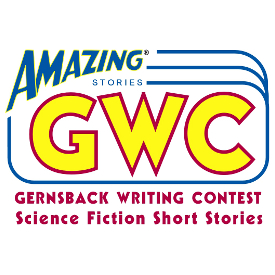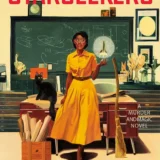They Said WHAT?!?: Dealing with reviews
Welcome back to my series on marketing and selling short fiction. I’ve written these posts in a very specific sequence, with each entry building on previous ones. You can read my earlier posts here.
In part 17, I started a mini-series on what happens when you finally sell a story. So far, I’ve covered short fiction contracts, working with an editor, and what your first sale really means. This week, I deal with a good news / bad news aspect of publishing your first story…the ever anticipated, ever dreaded reviews.
What Reviews Really Are
Write this down. Put it over your writing desk. Memorize it.
A review is one person’s opinion.
First, it is opinion, not fact. It is subjective, not objective. It is coloured by that reviewer’s unique, particular, and peculiar tastes, biases, experiences, prejudices, blind spots, emotional makeup, personality, intellect, life view, and whether they burned their toast the day they wrote the review.
Second, that opinion belongs to a single, solitary individual. The world’s population is now over seven billion people. The person who reviewed your story represents .000000014% of humanity. One opinion in seven billion.
In other words, any review of your story, good or bad, is simply not important. It means nothing.
Notice that I said good or bad. A bad review is just one person’s opinion. So is a good review. So here’s the next piece of advice for you to pin over your writing desk:
Don’t believe your reviews.
Good or bad, a review means nothing. Whether a reviewer trashes your story as incoherent drivel or praises it as the greatest piece of modern fiction they’ve ever encountered, their review remains as one person’s opinion. It means nothing.
The Best Advice That You Will Ever Ignore
I will now give all new writers some advice, both simple and excellent, that you will immediately ignore:
Never read reviews of your work.
A negative review, especially of your first published story, can send a beginner into a downward spiral of self-doubt that completely torpedoes their confidence and ability to write new stories. I’ve seen it happen to good, promising, young writers.
But most newbies will ignore this advice, because new writers crave validation. They lack confidence, so they eagerly and obsessively Google for reviews of their work, hoping to have their fragile egos stroked and to bask in the effusive praise of strangers. And they will read whatever they find. If it’s a bad review, cue the despair and hand wringing. If it’s a good review, cue the over-inflated ego.
Remember, a review, good or bad, is just one person’s opinion. One person out of seven billion. It means nothing. Your story has already been published. Someone liked your story so much that they paid you money for it. That is what counts.
A Safe Approach to Reviews
Few of you will follow my advice of never reading reviews of your work. Your need for validation is too great. Emotion will override intellect.
And in truth, reviews do provide one item of value to a writer: pull quotes. Pull quotes are the extracted positive parts of a review, great for posting on your web site, your blog, or on book covers when you get to the point of doing a collection.
So how can you find great pull quotes if you never read reviews? The safest approach for a beginner is to enlist a trusted friend or family member who is supportive of your writing dream. Ask them to set up a permanent Google alert containing your writing name and your story name. Or set up the alert yourself and then forward your helper any results that it generates. Explain to your helper that their role is to read the reviews and filter out the negative ones, providing you with a list of only “safe” reviews.
Seem like a lot of trouble? Think you’re tough enough to handle a bad review? Shrug. Your career. Your decision. But you’ve been warned.
Pull Quotes: The Only Value in Reviews
Pick up any movie section of a newspaper and you’ll see pull quotes galore: “This summer’s blockbuster,” “A must-see thriller,” “Action-packed fun,” and so on.
Pull quotes are always going to be positive. Duh. Hollywood is not going to select anything negative out of a review to highlight. But that doesn’t mean the entire review containing a pull quote was glowing. The studio might have extracted the words “action-packed fun” from a passage that read, “Despite the miscasting of Stallone as the ballet dancer and the wooden acting of the supporting cast, the shoot-out finale at the Bolshoi provides plenty of action-packed fun.”
How to Do Pull Quotes
Let’s say your review-screening helper has sent you a positive review of your story. You want to grab some pull quotes to post in your blog and website. What’s the proper approach?
First, check out some examples on my review page on my website. Here are the basic rules for use and formatting:
- Most importantly, whatever you pull out must remain true to the intent of the reviewer. If my fictional movie review above had said “Boring throughout, with only the shoot-out at the Bolshoi providing a sadly short-lived bit of action-packed fun,” then the pull quote would have been straining the intent of the reviewer. Hollywood would still probably use the quote, but you shouldn’t as a writer.
- If you have multiple great quotes in a review separated by text that you don’t want, then use ellipses (…) to indicate where you have deleted text.
- If you drop original text as above, you may need to change or add words to make the quote grammatically correct or to continue to make sense. Any words that you add that are not in the original review should be enclosed in square brackets, [like this].
As an example, consider this fictitious review:
“In her brilliant debut story, Willa Newbie (not to be confused with William Newbee, whose new novel we review tomorrow) introduces us to an ensemble of likeable, believable characters caught in a post-apocalyptic scenario that she brings to an emotionally satisfying resolution.”
You might pull the following quotes from the above:
“[A] brilliant debut story…likeable, believable characters…an emotionally satisfying conclusion.”
Or:
“[A] brilliant debut story…[with] likeable, believable characters…[and] an emotionally satisfying conclusion.”
One Last Warning
Another critical piece of advice.
If you write, don’t review.
I find it head-shaking strange the number of writers, mostly beginners, who write reviews. Dumb, dumb, dumb for so many reasons.
First, it’s an astounding waste of time. You’re a writer. Your time is precious. So write, but write stories and novels, not reviews.
Next, there’s no upside for your writing career to being a reviewer. It won’t raise your profile as a fiction writer. You want profile? Then write more stories and get them published. And you can’t do that if you spend writing time doing reviews.
Most importantly, although there’s no upside, there is a major downside. Unless you write only positive reviews, then you are going to piss somebody off. You will make enemies, at a minimum the author, the acquiring editor, and the publisher–people who have a financial stake in that story or that publication or that author’s career. And they will remember you and not fondly. They will remember when your stories are published, when you submit stories to their publication, when you are up for awards, whenever they can have any possible impact on your writing career. Don’t think people are that petty? Shrug. Your career, your decision.
I also simply don’t think it’s fair to criticize the work of another writer, no matter how much you disliked it. Remember, this is only your opinion. And consider how you would feel if another writer eviscerated your fictional baby (yeah, that metaphor is intentional). It can also make you look as if you’re just jealous and petty. If you really feel you must give your opinion on how they could have made that particular work better, then send them a personal, non-public note.
If you as a fiction writer still remain enamoured with being a reviewer, then consider only reviewing works that you truly admired and enjoyed, where you can therefore be positive and help your fellow writers. But better yet…
If you write, don’t review.
If you’re interested, here are two posts by social media writer, Kristen Lamb, on the topic of writers as reviewers:
Should-authors-write-bad-book-reviews
Is-it-fair-for-authors-to-review-other-authors-do-we-ruin-the-magic
Next Week
In part 24, I’ll finish this mini-series on what happens after you sell your first story by talking about self-promotion for a writer.
Next Week: Let the Band Ring Out and the Banners Fly: How much is too much?
As always, please feel free to add comments and questions, and I’ll respond as best (and as soon as) I can.
~~~~~
PLAYING THE SHORT GAME — The Book!
I am thrilled to announce that I have now repackaged the 32 separate posts that make up this blog series into a book titled Playing the Short Game: How to Market & Sell Short Fiction. The book is completely updated and reorganized, with new material not in this blog series, plus an introduction from multi-genre, multi-award winning writer and editor, Kristine Kathryn Rusch. Here’s an extract from Kris’s intro:
Douglas Smith is the best person to write this book. … He’s one of the few people who has probably published more short fiction than I have, and in more countries, and more high-paying markets. He loves the short story as much as I do, and he’s good at writing them.
He’s just as good at the business side of the profession. He knows more about marketing short stories to other countries than I do. He understands how to manage short fiction contracts very well. He’s up-to-date on 21st century publishing practices, and he has a toughness that the best business people need.
We short story writers have needed a book like this for decades. I’m glad Doug decided to write it. Read and reread this volume. Because you’ll learn something each time you do. And take Doug’s advice. It’s spectacular.
—Kristine Kathryn Rusch
More information on the book, including full buying links for all major retailer sites, is available on my website here.
As a special offer to Amazing Stories readers, I’m offering discounts in my bookstore. Get the ebook or print edition at a discount by using the coupon codes AS-SHORT-E or AS-SHORT-P respectively at my website bookstore. Enjoy!
Doug is an award-winning Canadian writer whose fiction has appeared in twenty-five languages and thirty countries. His works include The Wolf at the End of the World, Chimerascope, and Impossibilia.









My first instinct would have been to punch every negative reviewer in the neck. ou can write in jail right? Good thing I found your posts:p
Glad they’re helping, Jade. And a lot of us would have the same initial reaction, but pull quotes are your best revenge.